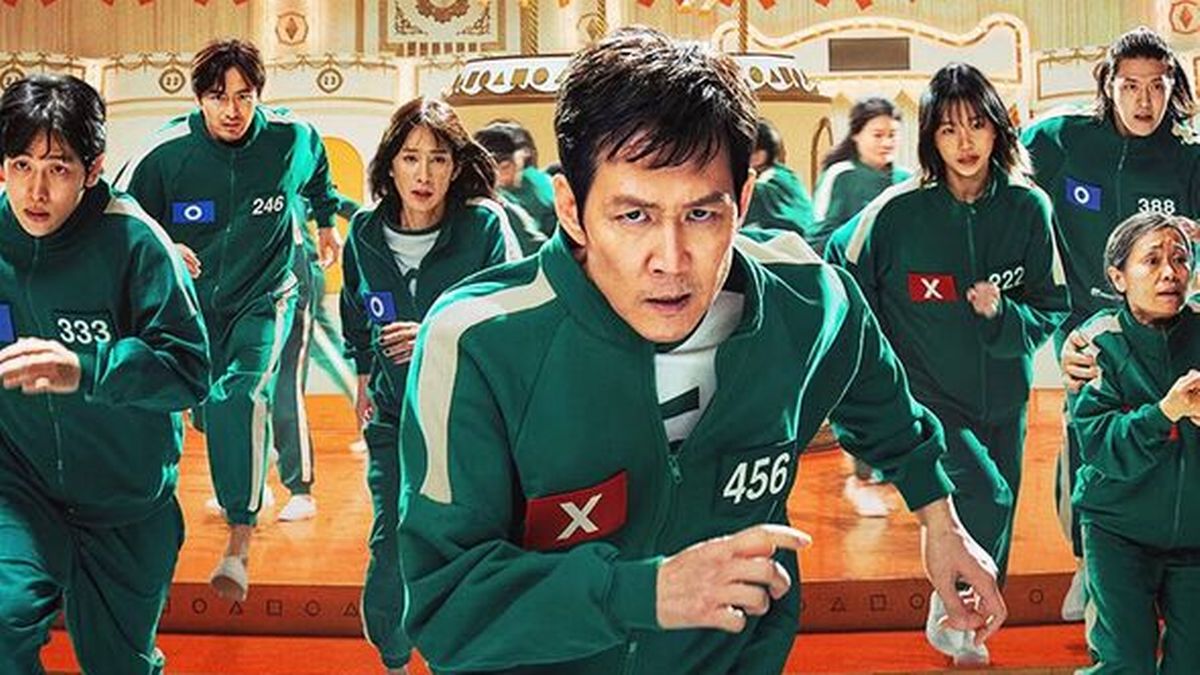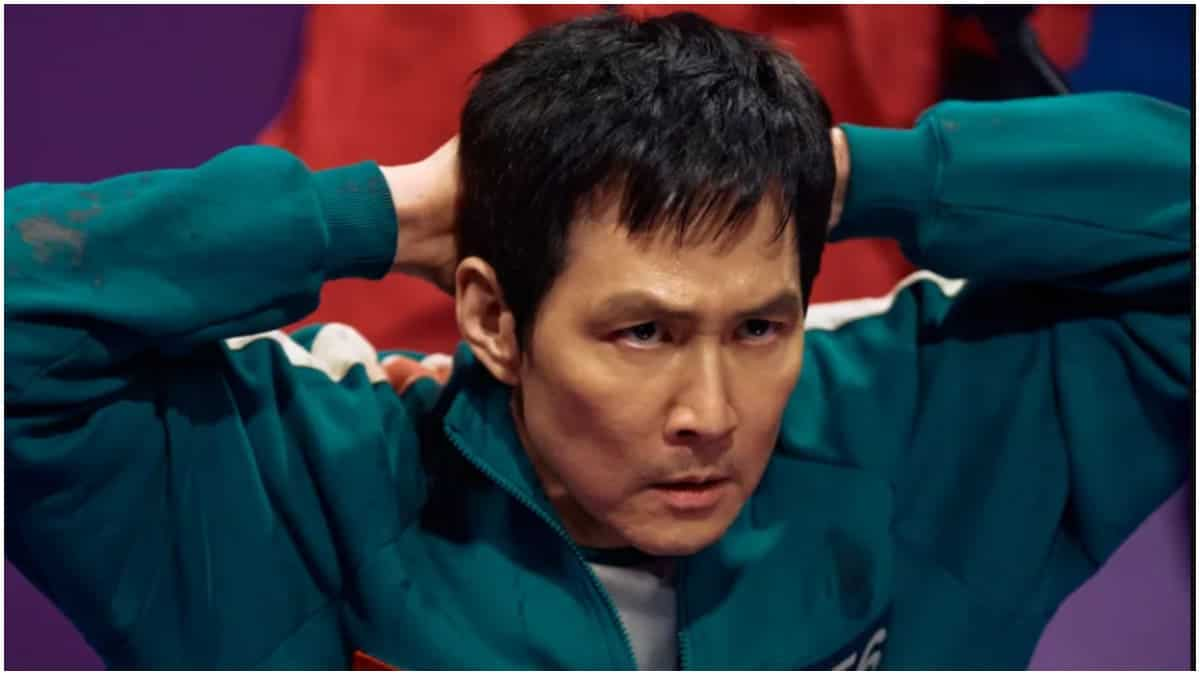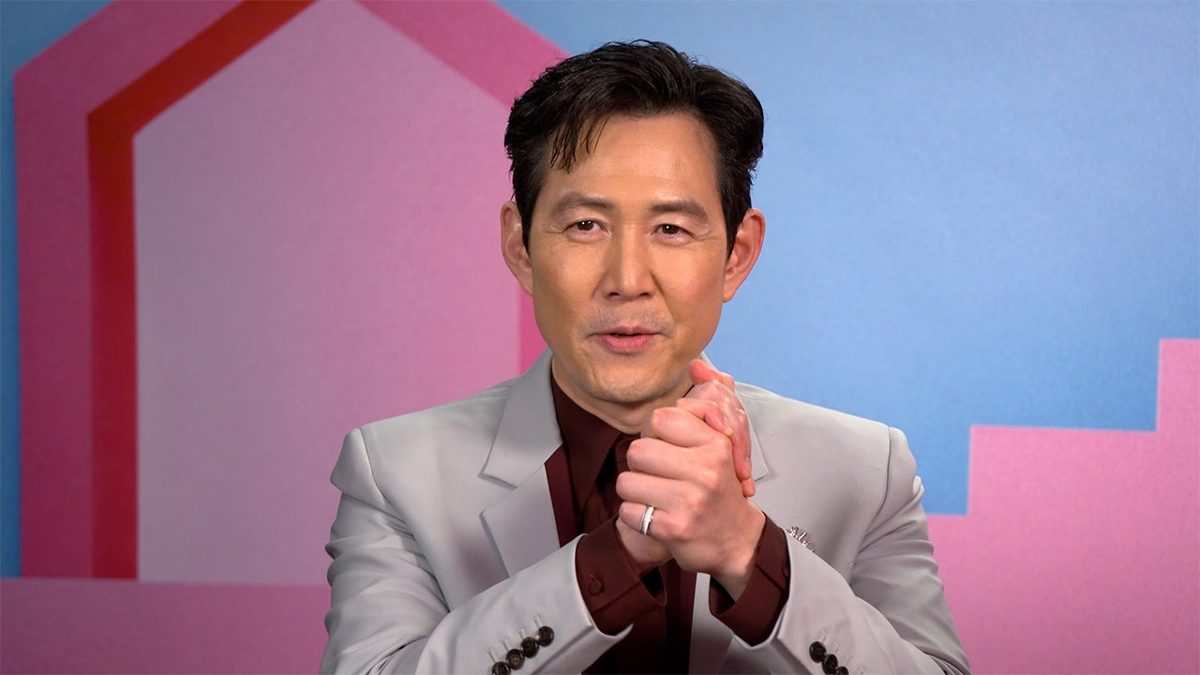Squid Game Season 2 ending takes viewers on an intense and unforgettable journey, leaving them grappling with its profound themes and implications.
The season’s finale brings the complex character arcs to a head, showcasing their growth and transformation amidst the harrowing events of the Squid Game. The plot structure and pacing are expertly crafted, keeping viewers on the edge of their seats until the very end.
Character Development and Growth
In Season 2 of Squid Game, the main characters undergo significant development and growth as they navigate the treacherous challenges of the games. Their experiences and interactions with each other shape their arcs, leading to profound transformations and a deeper understanding of their own humanity.
Seong Gi-hun
After winning the deadly games in Season 1, Gi-hun grapples with the trauma and guilt that haunts him. Struggling to find meaning in his newfound wealth, he embarks on a dangerous mission to expose the corrupt organizers of the games and seek justice for the victims.
Through his journey, Gi-hun confronts his own inner demons and evolves into a compassionate and determined leader.
Cho Sang-woo
Haunted by his betrayal of Gi-hun in Season 1, Sang-woo becomes a more ruthless and calculating player in Season 2. Driven by desperation and a thirst for revenge, he aligns himself with the organizers of the games, becoming a pawn in their sinister plans.
Sang-woo’s arc explores the consequences of his choices and the destructive power of ambition.
Kang Sae-byeok
Having escaped the games in Season 1, Sae-byeok returns to South Korea to reunite with her family. However, her past experiences continue to haunt her, and she finds herself drawn back into the deadly competition. Sae-byeok’s arc focuses on the enduring effects of trauma and the resilience of the human spirit.
Hwang Jun-ho
The enigmatic detective who infiltrated the games in Season 1, Jun-ho continues his relentless pursuit of the truth in Season 2. As he uncovers the secrets behind the organization, Jun-ho’s determination is tested, and he faces moral dilemmas that challenge his own beliefs.
Jun-ho’s arc explores the complexities of justice and the sacrifices one must make to fight for what is right.
The Front Man
The enigmatic figure who oversees the games in Season 2, the Front Man’s true identity and motivations remain a mystery. As the season progresses, clues emerge that hint at a deeper connection between the Front Man and the players, raising questions about his true allegiance and the nature of the games themselves.
Plot Structure and Pacing
The plot of Season 2 of Squid Game follows a similar structure to Season 1, with a group of contestants competing in a series of deadly games for a chance to win a large sum of money. However, there are some key differences in the pacing and structure of the two seasons.
One of the most noticeable differences is that Season 2 has a slower pace than Season 1. This is evident in the first few episodes, which focus on character development and world-building. The games themselves are also less frequent and more spaced out, giving the viewer more time to process the events of the previous episode and connect with the characters.
Climax
The climax of Season 2 comes in the final episode, when the remaining contestants face off in a final game. This game is more complex and challenging than any of the previous games, and it forces the contestants to confront their own mortality and the true nature of the competition.
The pacing of the climax is deliberately slow, building tension and suspense as the contestants struggle to survive. The viewer is given ample time to process the events of the game and to reflect on the choices that the contestants have made.
Comparison to Season 1, Squid game season 2 ending
Compared to Season 1, Season 2 has a slower pace and a more complex plot. The games are more challenging and the stakes are higher, and the viewer is given more time to connect with the characters. This slower pace allows for a more in-depth exploration of the themes of the show, such as the nature of violence, the power of hope, and the importance of human connection.
Themes and Symbolism
Squid Game Season 2 delves deeper into the exploration of societal themes, human nature, and moral dilemmas. The show continues to critique class inequality, highlighting the stark contrast between the wealthy elite and the struggling masses. The games themselves serve as a microcosm of this struggle, pitting desperate individuals against each other in a fight for survival.
Morality and the Nature of Humanity
The show challenges the boundaries of morality, questioning the extent to which people are willing to go to survive. The contestants are forced to make difficult choices, often at the expense of others. Through these trials, the show explores the fragility of human empathy and the potential for both good and evil within each individual.
Symbolism in Season 2
Symbolism plays a significant role in conveying the themes of Season 2. The use of color, objects, and imagery reinforces the show’s central messages. For example, the pink jumpsuits worn by the contestants represent their collective vulnerability and the dehumanizing nature of the games.
The honeycomb game, where contestants must carve out shapes without breaking them, symbolizes the fragility of life and the precariousness of their existence.
Social Commentary and Relevance
Season 2 of Squid Game amplifies the social commentary present in Season 1, delivering a poignant critique of capitalism, inequality, and violence.The show exposes the devastating consequences of unbridled capitalism, where individuals are reduced to mere commodities in a ruthless system that values profit over human life.
The games are designed to pit the contestants against each other, creating a sense of distrust and paranoia. This reflects the competitive nature of capitalism, which often pits individuals against each other in a race to the top.Moreover, the show highlights the growing inequality between the wealthy elite and the impoverished masses.
The VIPs, representing the upper echelons of society, watch the games for entertainment, oblivious to the suffering of the contestants. This disparity mirrors the real-world divide between the rich and the poor, where the privileged few reap the benefits of society while the majority struggle to make ends meet.
Visual Style and Cinematography
Season 2 of Squid Game maintains the distinctive visual style that captivated audiences in Season 1, employing a vibrant color palette, dynamic lighting, and immersive camera work to enhance the show’s atmosphere and tone.
Color Palette
- The show continues to utilize a bold and saturated color palette, with bright neon hues contrasting against muted, earthy tones.
- The use of red remains prominent, symbolizing danger, violence, and the intense stakes of the games.
- Subtle changes in color grading distinguish the different game environments, creating distinct visual identities for each.
Lighting
Lighting plays a crucial role in shaping the atmosphere of Season 2. High-contrast lighting accentuates the tension and drama, while soft, diffused lighting creates moments of intimacy and vulnerability.
- Natural light is often used to emphasize the stark reality of the games, while artificial light creates a surreal and otherworldly atmosphere.
- Shadow and darkness are effectively utilized to evoke a sense of mystery and unease.
Camera Work
The cinematography of Season 2 is highly dynamic, employing a range of techniques to immerse viewers in the action and heighten the emotional impact.
- Long, sweeping shots establish the scale and grandeur of the games, while close-ups capture the characters’ intense emotions.
- Handheld cameras create a sense of immediacy and urgency, while drone shots offer a bird’s-eye view of the unfolding chaos.
- Slow motion is used sparingly but effectively to emphasize key moments and convey the characters’ inner struggles.
Comparison to Season 1, Squid game season 2 ending
While Season 2 retains the visual hallmarks of Season 1, it introduces subtle changes that enhance the show’s overall aesthetic.
- The color palette is slightly more muted, reflecting the darker and more introspective nature of Season 2.
- Lighting is used more sparingly, creating a more oppressive and claustrophobic atmosphere.
- The camera work is more fluid and dynamic, capturing the heightened stakes and emotional turmoil of the characters.
Music and Sound Design
In Season 2 of Squid Game, music and sound design play a pivotal role in creating tension, atmosphere, and emotional impact. The show’s soundtrack, composed by Jung Jae-il, masterfully blends traditional Korean instruments with electronic and orchestral elements to create a unique and immersive soundscape.
Specific musical cues are used to heighten the tension in key scenes. For instance, the “Red Light, Green Light” theme features a haunting melody and a relentless beat, which builds suspense and creates a sense of urgency. In contrast, the “Tug-of-War” theme uses a more uplifting and triumphant melody, reflecting the characters’ determination and resilience.
Sound Effects
Sound effects are equally crucial in enhancing the show’s atmosphere. The use of diegetic sounds, such as the creaking of metal doors and the footsteps of guards, creates a realistic and immersive environment. Non-diegetic sounds, such as the eerie humming that accompanies the masked guards, add to the show’s unsettling and surreal atmosphere.
Overall, the music and sound design in Squid Game Season 2 work seamlessly together to create a powerful and immersive experience that heightens the show’s emotional impact and leaves a lasting impression on viewers.
Cultural Impact and Reception
The second season of Squid Game has garnered widespread popularity and critical acclaim, solidifying its position as a global cultural phenomenon. The show has sparked numerous conversations about its themes of class inequality, desperation, and the human condition.
Critical Reception
Season 2 has received mostly positive reviews from critics, with many praising its gripping storyline, thought-provoking themes, and strong performances. The show’s exploration of social issues has resonated with audiences worldwide, making it a subject of extensive analysis and discussion.
Fan Reactions
Fans have enthusiastically embraced Season 2, with many expressing their appreciation for its compelling characters, emotional depth, and unpredictable plot twists. The show’s success has also led to a surge in fan-created content, including memes, cosplay, and online discussions.
Influence on Popular Culture
Squid Game Season 2 has significantly influenced popular culture. Its iconic imagery and characters have become widely recognized, inspiring numerous parodies, homages, and merchandise. The show has also prompted conversations about the ethical implications of extreme entertainment and the role of media in shaping societal values.
Comparison to Season 1, Squid game season 2 ending
While Season 2 shares many similarities with Season 1, it also introduces new themes and explores different aspects of the human experience. The second season has a broader scope, delving deeper into the backstories of the characters and examining the psychological toll of the games.
Both seasons have been praised for their originality, suspenseful storytelling, and thought-provoking themes. However, Season 2 has arguably sparked even more cultural impact due to its expanded narrative and increased focus on social commentary.
Final Thoughts: Squid Game Season 2 Ending
Overall, Squid Game Season 2 ending is a masterful piece of television that delivers an emotionally resonant and intellectually stimulating conclusion. It leaves viewers with a lasting impact, prompting them to reflect on the nature of humanity, the consequences of violence, and the importance of social justice.
FAQs
What is the significance of the ending of Squid Game Season 2?
The ending serves as a powerful commentary on the cyclical nature of violence and the futility of relying on violence to solve societal problems.
How does the ending compare to that of Season 1?
While both endings are impactful, Season 2’s ending is more conclusive and provides a sense of closure while leaving room for interpretation.
What are the major themes explored in Squid Game Season 2 ending?
The ending delves into themes such as morality, class inequality, the dehumanizing effects of violence, and the search for redemption.



